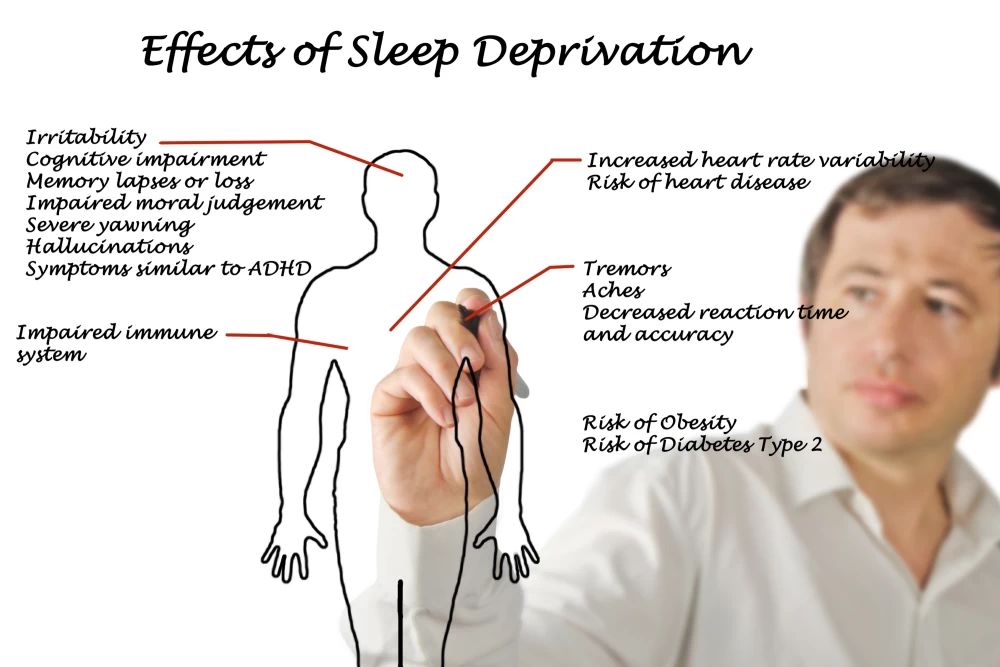
- 21st June 2023
Table of Contents
The Value of Naps
In order to maintain a healthy lifestyle, sleep must be prioritised. Enhancing brain function, regulating hormones, lowering stress levels, and repairing damaged tissues are just a few of the ways it contributes to one's overall health and well-being. Obesity, diabetes, heart disease, and depression are just some of the health issues that can develop from not getting enough sleep. Getting enough shut-eye is also critical for staying physically fit. Poor athletic performance can be attributed to sleep deprivation, which slows reaction time, reduces endurance and strength, and raises the risk of injury. After engaging in strenuous physical activity like exercise or sports, getting a good night's sleep can aid in the body's recovery. In conclusion, making high-quality sleep a top priority is essential to any wellness or exercise programme. It does wonders for your mental and emotional health in addition to your physical performance. People who have trouble sleeping may benefit from seeing a doctor to address the underlying issues that are keeping them from getting a good night's rest on a regular basis.
The Importance of Sleep to Our Bodily Functioning
Sufficient sleep is essential for a healthy body. The body's defences against illness and disease weaken when its inhabitants don't get enough sleep. This is because sleep is critical to the immune system's ability to ward off illness-causing viruses and bacteria. Furthermore, sleep deprivation can undermine your efforts to improve your physical health. Reduced energy and performance during exercise can be the result of a lack of sleep, making it more challenging to reach fitness goals. Increased cravings for unhealthy foods have been linked to fluctuations in hormone levels, including cortisol (the stress hormone) and leptin (the hunger hormone). In conclusion, your physical health and fitness goals will benefit greatly if you make getting enough quality sleep each night a priority. It does wonders for your immune system and gives you the pep you need to crush your workout or any other daily task. As a result, everyone needs to make rest a top priority as part of their everyday health routine.
The Effects of Sleep Deprivation on Emotional Well-Being
Getting enough shut-eye is essential for your mental health. Negative mental effects of sleep deprivation include irritability, mood swings, and inability to focus. Anxiety and depression are two more mental health issues that have been linked to insufficient sleep. Those with mental health issues should prioritise getting enough sleep above all else. Insomnia sufferers are more likely to experience mood and anxiety disorders, according to research. In fact, treating insomnia in these patients can have far-reaching positive effects on their emotional health. Getting a good night's sleep can do more than just help your mind feel better; it can also help you feel better and think better. The benefits of better mental clarity and emotional stability can be reaped by making good sleep hygiene a priority.

The Impact of Sleep Deprivation on Athletic Performance
Because our bodies repair and recharge while we sleep, sleep is an essential factor in athletic performance. Scientific studies have shown that athletes who get enough rest perform better than their counterparts who don't. The release of growth hormones during sleep promotes muscle repair and development. Furthermore, sleep aids in maintaining healthy levels of both metabolism and appetite. A lack of sleep has been linked to increased hunger throughout the day, which can lead to overeating and poor food choices if not addressed. This is especially crucial for athletes, who need to eat well to fuel their workouts. Furthermore, sleep deprivation can impair cognitive performance, including reaction time, decision making, and focus. Athletes absolutely need to have these abilities for both practise and competition. In order to perform at their physical and mental best, athletes should incorporate regular, restful sleep into their training regimen.
How to Sleep Well to Manage Your Weight
Scientific studies have shown that the less sleep a person gets, the more likely they are to put on weight. Sleep deprivation can cause hormonal imbalances that make you hungrier and slow your metabolism. Fatigue and lack of energy are additional side effects, which can make it hard to engage in physical activity or opt for healthier options when eating. Regular sleep deprivation has been linked to an increased risk of obesity, with studies showing a correlation between less than 7 hours of sleep per night and a higher body mass index. Low-quality sleep has been linked to an increased risk of obesity. Maintaining a healthy weight requires getting at least seven hours of quality sleep per night. Good sleep hygiene entails doing things like making bedtime a relaxing experience and avoiding stimulants and screens in the hours leading up to sleep. Getting a good night's sleep will improve your health and well-being in general, and it will also help you control your appetite.
Sleep Improvement Strategies
Sleep is an important part of a healthy lifestyle because it has a direct impact on one's physical and mental well-being. Weight gain, impaired cognition, decreased productivity, and an increased risk of developing chronic conditions like diabetes and heart disease have all been linked to inadequate sleep. It is important to develop a regular bedtime routine that allows the body to wind down and prepare for sleep if you want to improve your sleep hygiene. If you're having trouble getting to sleep, cutting back on caffeine and alcohol consumption in the hours before bed may help. Both substances have the potential to interfere with your body's natural sleep cycle, making it difficult to get to sleep or stay asleep. Screens emit blue light that can disrupt our body's production of melatonin, a hormone that controls our sleep-wake cycle, so limiting their use in the hours leading up to bedtime can be helpful. In addition, trying out stress-relieving activities like meditation or deep breathing exercises in the hours leading up to bedtime can be very beneficial. It's crucial to prioritise not only getting enough sleep but also getting the kind of restorative sleep that leaves you feeling refreshed when you wake up in the morning. You can improve your health in many ways by incorporating these suggestions for better sleep into your daily routine.
Conclusion
Overall, sleep's importance to our health and fitness has been established. Many aspects of one's physical and mental health can be negatively impacted by a lack of sleep. It has detrimental effects on our metabolic rate, immune system, and brain function. In contrast, getting enough shut-eye can aid in weight management, cardiovascular health, and stress reduction. Maintaining a regular sleep schedule, avoiding caffeine in the hours leading up to bed, limiting screen time in the hours leading up to bed, and making sure you have a comfortable sleeping environment are all important ways to improve the quality of your sleep. The amount of sleep an individual needs also varies from person to person based on their age and other lifestyle factors. Getting a good night's sleep is fundamental to maintaining a healthy lifestyle and should be a part of everyone's daily routine. Long-term benefits include enhanced physical performance during workouts, improved decision-making ability throughout the day, and reduced mental health issues like anxiety and depression if good sleep hygiene practises are consistently prioritised over time.














